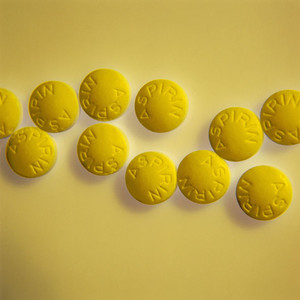Last update: 15 June 2018
The public health arm of the United Nations is World Health Organisation (WHO).
WHO, via its biological standardisation programme, develops guidelines and recommendations on the production and control of biological products and technologies.
Guidelines provide general information on a range of topics of interest to national regulatory authorities (NRAs) and manufacturers, whereas recommendations establish the technical specifications for manufacturing and quality control of specific products. By adopting these guidance documents in their pharmacopoeias or equivalent legislation, national governments ensure that the products produced and used in their country conform to current international standards. Regulatory guidance documents also advise NRAs and manufacturers on the control of biological products, with the aim of establishing a harmonised regulatory framework for products moving in international markets.
1. Overarching Guideline
The WHO Expert Committee on Biological Standardization adopted the following guideline regarding biosimilars at its 60th meeting in October 2009. This guideline covers all biosimilar products:
Guidelines on evaluation of similar biotherapeutic products (SBPs)
Effective date: 2010
www.who.int/biologicals/publications/trs/areas/biological_therapeutics/TRS_977_Annex_2.pdf?ua=1
The document aims to:
- provide key principles for evaluation of SBPs as a basis for setting national requirements
- leave space for NRAs to formulate additional/more specific requirements.
Scope
- The guideline applies to well-established and well-characterised biotherapeutic products, such as recombinant DNA-derived therapeutic proteins.
- Vaccines and plasma-derived products and their recombinant analogues are excluded from the scope of this document.
WHO recommendations and regulatory guidance for these products are available from: www.who.int/biologicals/areas/en
2. Specific Guidelines
These guidelines are specific to the type of biosimilar product.
Guidelines for pharmaceutical and biological products prepared by recombinant DNA technology were adopted by WHO in 1983 and updated in 1990. Guidelines for human interferons prepared from lymphoblastoid cells and human interferons made by recombinant DNA technique have also been established.
Guidelines on evaluation of monoclonal antibodies as similar biotherapeutic products (SBPs), Annex 2, WHO Technical Report Series, No. 1004.
Effective date: 2016
www.who.int/biologicals/biotherapeutics/WHO_TRS_1004_web_Annex_2.pdf?ua=1
3. Other guidelines
Other guidelines relevant for biosimilars from the WHO include:
Guidelines on procedures and data requirements for changes to approved biotherapeutic products
Effective date: 2017
http://www.who.int/biologicals/expert_committee/PAC_highlighted_20_Oct_2017.HK.IK.pdf?ua=1
Guidelines on the quality, safety and efficacy ofbiotherapeutic protein products prepared by recombinant DNA technology, Annex 4, WHO Technical Report Series, No. 987.
Effective date: 2014
http://www.who.int/biologicals/biotherapeutics/TRS_987_Annex4.pdf?ua=1
Replacement of Annex 3, No. 814, 1991
Guidelines for assuring the quality of monoclonal antibodies for use in humans, Annex 3, WHO Technical Report Series, No. 822.
Effective date: 1992
www.who.int/biologicals/areas/vaccines/WHO_TRS_822_A3_mAbs.pdf
Requirements for human interferons prepared from lymphoblastoid cells (Requirements for biological substances No.42), Annex 3, WHO Technical Report Series, No. 786.
Effective date: 1989
www.who.int/biologicals/publications/trs/areas/cytokines/WHO_TRS_786_A3.pdf
Requirements for human interferons made by recombinant DNA techniques (Requirements for biological substances No.41), Annex 7, WHO Technical Report Series, No. 771.
Effective date: 1988
www.who.int/biologicals/areas/cytokines/WHO_TRS_771_(part2)_A7.pdf
Related articles
EU guidelines for generics
The current EU regulatory framework governing biosimilars
Regulatory recommendations for biosimilars in the EU








 0
0











Post your comment